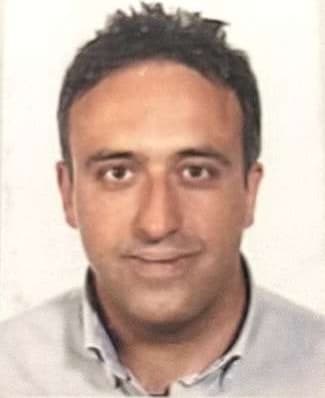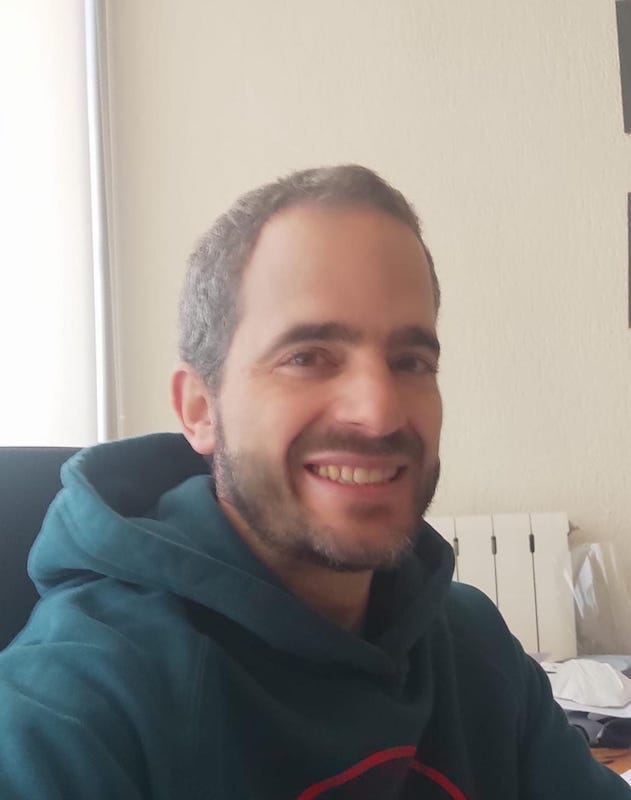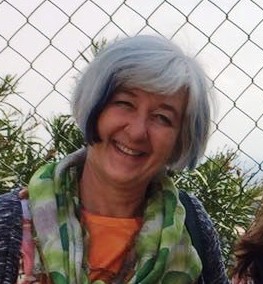Studying at the University of Verona
Here you can find information on the organisational aspects of the Programme, lecture timetables, learning activities and useful contact details for your time at the University, from enrolment to graduation.
Academic calendar
The academic calendar shows the deadlines and scheduled events that are relevant to students, teaching and technical-administrative staff of the University. Public holidays and University closures are also indicated. The academic year normally begins on 1 October each year and ends on 30 September of the following year.
Course calendar
The Academic Calendar sets out the degree programme lecture and exam timetables, as well as the relevant university closure dates..
| Period | From | To |
|---|---|---|
| I semestre (Lingue e letterature straniere) | Sep 28, 2020 | Jan 9, 2021 |
| II semestre (Lingue e letterature straniere) | Feb 15, 2021 | May 29, 2021 |
| Session | From | To |
|---|---|---|
| ESAMI LINGUE - sessione invernale | Jan 11, 2021 | Feb 13, 2021 |
| ESAMI LINGUE - sessione estiva | May 31, 2021 | Jul 24, 2021 |
| ESAMI LINGUE - sessione autunnale | Aug 30, 2021 | Sep 25, 2021 |
| Session | From | To |
|---|---|---|
| LAUREE LINGUE - sessione autunnale (a.a. 2019/20) | Nov 2, 2020 | Nov 7, 2020 |
| LAUREE LINGUE - sessione straordinaria (a.a. 2019/20) | Apr 7, 2021 | Apr 13, 2021 |
| LAUREE LINGUE - sessione estiva (a.a. 2020/21) | Jul 5, 2021 | Jul 10, 2021 |
| Period | From | To |
|---|---|---|
| Festa di Ognissanti | Nov 1, 2020 | Nov 1, 2020 |
| Festa dell'Immacolata | Dec 8, 2020 | Dec 8, 2020 |
| Festa della liberazione | Apr 25, 2021 | Apr 25, 2021 |
| Festa del lavoro | May 1, 2021 | May 1, 2021 |
| Festa del Santo Patrono | May 21, 2021 | May 21, 2021 |
| Festa della Repubblica | Jun 2, 2021 | Jun 2, 2021 |
Exam calendar
Exam dates and rounds are managed by the relevant Foreign Languages and Literatures Teaching and Student Services Unit.
To view all the exam sessions available, please use the Exam dashboard on ESSE3.
If you forgot your login details or have problems logging in, please contact the relevant IT HelpDesk, or check the login details recovery web page.
Should you have any doubts or questions, please check the Enrollment FAQs
Academic staff
 sara.paolini@univr.it
sara.paolini@univr.it
 daniela.spina@univr.it
daniela.spina@univr.it
Study Plan
The Study Plan includes all modules, teaching and learning activities that each student will need to undertake during their time at the University.
Please select your Study Plan based on your enrollment year.
1° Year
| Modules | Credits | TAF | SSD |
|---|
1st foreign language2nd foreign language1st foreign literature 1 LM. Forms, genres and critical approaches2nd foreign literature 1 LM. Forms, genres and critical approaches2° Year activated in the A.Y. 2021/2022
| Modules | Credits | TAF | SSD |
|---|
1st foreign literature disciplinary area2nd foreign literature disciplinary area or textual and comparative studies1st or 2nd foreign literature 2 LM. Critical methodologies and textual interpretationA philology to be chosen among the following (philology must be related to one of the chosen languages)History of the 1st or the 2nd foreign language| Modules | Credits | TAF | SSD |
|---|
1st foreign language2nd foreign language1st foreign literature 1 LM. Forms, genres and critical approaches2nd foreign literature 1 LM. Forms, genres and critical approaches| Modules | Credits | TAF | SSD |
|---|
1st foreign literature disciplinary area2nd foreign literature disciplinary area or textual and comparative studies1st or 2nd foreign literature 2 LM. Critical methodologies and textual interpretationA philology to be chosen among the following (philology must be related to one of the chosen languages)History of the 1st or the 2nd foreign language| Modules | Credits | TAF | SSD |
|---|
Legend | Type of training activity (TTA)
TAF (Type of Educational Activity) All courses and activities are classified into different types of educational activities, indicated by a letter.
Germanic philology LM. Manuscript and Textual Studies (2021/2022)
Teaching code
4S006119
Teacher
Coordinator
Credits
6
Also offered in courses:
- Germanic philology lm of the course Master's degree in Linguistics
Language
English
Scientific Disciplinary Sector (SSD)
L-FIL-LET/15 - GERMANIC PHILOLOGY
Period
I semestre (Lingue e letterature straniere) dal Sep 27, 2021 al Jan 8, 2022.
Learning outcomes
The course includes topics on textual criticism, codicology, palaeography, historical linguistics and cultural history (also by means of a Digital Humanities approach to texts and contents) and it aims at studying the main multidisciplinary aspects characterizing Germanic Philology. Expected Outcomes At the end of the course the student will prove: - to be able to employ at an advanced stage knowledge and methodologies (also digital methodologies), and cultural contents which are necessary for the analysis and interpretation of Germanic linguistic and literary traditions; - to have examined in depth the main multidisciplinary aspects of the discipline and to have strengthened the mastery of a correct and accurate specialized terminology; - To be able to apply autonomously the acquired knowledge and contents in the field of textual-criticism and digital philology, codicology, paleography, historical linguistics, to the analysis and modelling of texts with the purpose of creating scholarly editions, archives and databases. This will promote knowledge of methodologies and applications in the field of philology, textual criticism and linguistics (in compliance with the learning outcomes of the Master Degree in Comparative European and Non-European Languages and Literatures).
Program
In the Germanic heroic tradition the events related to some characters belonging to the era of the great migrations play a fundamental role in understanding the textual dynamics marking the development of vernacular literatures. One of the best-known heroes in medieval Germanic literatures is certainly Theodoric of Verona (Dietrich von Bern in the German tradition, Þiðrekr af Bern in the Old Norse one), who can be defined as the result of the legendary reworking of the historical figure of the Ostrogothic king Theodoric the Great (454-526).
Starting from the historical and cultural context of the events surrounding the figure of Theodoric, the course will consider some of the most significant literary testimonies from the Germanic area. For instance, a Þjóðríkr is mentioned on the Rök stone inscription (9th century), which is considered the first literary attestation in Swedish, or in texts from the Anglo-Saxon tradition, such as Widsith or Deor (8th cent.). His fictional exile by the Huns is also the thread of the events narrated in the Hildebrandslied (9th century), the oldest heroic poem of the medieval German tradition. Also in the Middle High German Nibelungenlied (13th century) Dietrich appears at the court of Attila, while the Nordic tradition hands down the entire life of the hero in the Þiðrekssaga af Bern (13th century).
Relevant parts of the above-mentioned texts will be examined starting from an analysis of the documents in which they are preserved and of the language in which they are written. The reading and commentary will aim at tracing the multifaceted reception of this legend within Germanic languages and cultures. The various forms of literary reception of the figure of Theodoric are well summarized in the bas-reliefs of the basilica of San Zeno in Verona (12th century), where the valiant king is portrayed in the duel against Odoacer, in the traditional hunting scene and in the first iconographic attestation of his infernal ride, which will find wide confirmation within the Germanic textual tradition.
Teaching:
As established by the university for the A.Y. 2021/2022, the course may take place either on the Zoom institutional platform, in the form of frontal streaming lessons (possibly supplemented by some recorded lessons), or face-to-face according to the indications that will be provided in due time. Any changes will be announced before the start of the course by means of a notice on the instructor's personal page and on the Moodle platform, to which everyone is required to register. Any suspension of lessons or changes will be communicated in the same way.
The course materials for attending students consist of the teacher's lectures, slides and other materials that will be made available on Moodle. The program for non-attending students must be agreed in advance. For this reason, non-attending students are asked to contact the teacher via email (via an institutional address @ students.univr.it) for a possible online meeting (or in presence, if allowed).
Bibliography
Examination Methods
There will be an oral exam on Zoom or in person (depending on the evolution of the pandemic) and in both cases it will follow the official schedule published by the University. For those attending there will be a pre-roll call to be agreed together.
The oral exam will assess both the level of acquired contents and the ability to critically address the topics covered during the course, and to create connections among them. Part of the evaluation will also concern the correct and consistent presentation of the acquired knowledge; another part will verify the competent and appropriate use of the philological micro-language. During the exam the assimilation of the primary sources can be tested by reading, translation, and comment of short excerpts selected from the texts studied during the course and provided by the instructor during the exam. The final result is expressed out of 30 and it is to be understood as an overall evaluation of the results achieved.
For non-attending students, the exam will be oral and will follow the indications above.
Type D and Type F activities
| years | Modules | TAF | Teacher |
|---|---|---|---|
| 1° 2° | Laboratorio di introduzione alle metodologie e tecnologie didattiche - Lingua e cultura francese | F |
Maria Francesca Bonadonna
(Coordinator)
|
| 1° 2° | Laboratorio di introduzione alle metodologie e tecnologie didattiche - Lingua e cultura inglese | F |
Paola Vettorel
(Coordinator)
|
| 1° 2° | Laboratorio di introduzione alle metodologie e tecnologie didattiche - Lingua e cultura spagnola | F |
Francesca Dalle Pezze
(Coordinator)
|
| 1° 2° | Laboratorio di introduzione alle metodologie e tecnologie didattiche - Lingua e cultura tedesca | F |
Sibilla Cantarini
(Coordinator)
|
To discover all the teaching activities accredited by the foreign teaching college click here
Career prospects
Module/Programme news
News for students
There you will find information, resources and services useful during your time at the University (Student’s exam record, your study plan on ESSE3, Distance Learning courses, university email account, office forms, administrative procedures, etc.). You can log into MyUnivr with your GIA login details: only in this way will you be able to receive notification of all the notices from your teachers and your secretariat via email and also via the Univr app.
Gestione carriere
Student login and resources
Attività accreditate D/F
Calendario didattico dettagliato
Competenze linguistiche (prima e seconda lingua)
Language skills
Compilazione del piano didattico
Corso di Lingua portoghese
Erasmus+ e altre esperienze all'estero
Linguistic training CLA
Percorso verso l'insegnamento
Una delle possibilità per gli studenti dopo il conseguimento della laurea magistrale è l’insegnamento nella scuola: l’Università degli Studi di Verona è tra gli enti accreditati dal MIUR per l'erogazione di corsi di formazione e aggiornamento e qualificazione delle competenze per insegnanti. Il percorso per diventare insegnante è legato alle seguenti condizioni:
1a CONDIZIONE
Il possesso della laurea magistrale o a ciclo unico, oppure diploma di II livello dell’alta formazione artistica, musicale e coreutica, oppure titolo equipollente o equiparato, coerente con le classi di concorso vigenti alla data di indizione del concorso; il futuro insegnante dovrà, inoltre, soddisfare i requisiti di accesso previsti per la classe di concorso scelta.
Per le classi di concorso:
- A-24 (Lingue e culture straniere negli istituti di istruzione secondaria di II grado) e
- A-25 (Lingua inglese e seconda lingua comunitaria nella scuola secondaria I primo grado)
sono previsti i seguenti requisiti di accesso (vedi l’allegato A al DM 259/2017):
1) 18 CFU nei settori scientifico disciplinari L-LIN/01 e/o L-LIN/02
2) 36 CFU della lingua di specializzazione scelta
3) 24 CFU della letteratura relativa alla lingua di specializzazione scelta.
I requisiti specifici delle classi di concorso A-24 e A-25 possono essere soddisfatti nell’ambito dei piani didattici o negli esami a scelta libera superati all’interno del percorso di studio universitario (Laurea Triennale e Magistrale), oppure attraverso l’iscrizione a corsi singoli.
Il requisito relativo alla lingua di specializzazione (2) è soddisfatto (sulla base degli esami previsti nel piano didattico) nell’ambito del percorso formativo che comprende una laurea triennale dell’area di Lingue e Letterature Straniere, seguita da una laurea magistrale della medesima area (qualsiasi Corso di Laurea triennale e magistrale dell’area di Lingue e Letterature Straniere).
Per verificare i requisiti relativi alla letteratura di specializzazione (3) e agli insegnamenti di linguistica che appartengono ai settori scientifico-disciplinari di L-LIN/01 e L-LIN/02 (1), invece, gli studenti sono invitati a consultare il proprio piano didattico per verificare il numero di CFU previsti nel percorso formativo.
2a CONDIZIONE
Il possesso dei 24 crediti formativi universitari o accademici acquisiti in forma curricolare, aggiuntiva o extra curricolare nelle discipline antropo-psico-pedagogiche e nelle metodologie e tecnologie didattiche, garantendo comunque il possesso di almeno 6 CFU conseguiti in ciascuno di almeno tre dei seguenti quattro ambiti disciplinari:
1) pedagogia;
2) pedagogia speciale e didattica dell’inclusione;
3) psicologia; antropologia;
4) metodologie e tecnologie didattiche.
Percorso formativo 24 CFU
Consente di acquisire uno dei requisiti di partecipazione al concorso nazionale per l’accesso al “percorso annuale di formazione iniziale e prova” su posti comuni e di sostegno, ai sensi del D.Lgs 13 aprile 2017, n. 59 come modificato dalla legge n.145 del 30/12/2018 (c. dal 792 al 796).
I settori scientifico disciplinari, gli obiettivi formativi, le modalità organizzative e gli eventuali costi sono stati stabiliti dal D.M. 10 agosto 2017, n. 616.
Per sapere quali insegnamenti della propria carriera vengano automaticamente riconosciuti si rimanda alla pagina del sito di Ateneo dedicata al percorso formativo 24 CFU.
Si consiglia agli interessati di consultare la pagina https://www.univr.it/it/i-nostri-servizi/futuri-studenti/post-laurea/formazione-degli-insegnanti in costante aggiornamento, in particolare sezione documenti in cui vengono pubblicati formulari, programmi degli insegnamenti ed elenchi di studenti ammessi.
Tra gli insegnamenti automaticamente riconosciuti nell’ambito dei 24 CFU vi sono: Insegnamento delle lingue (L-LIN/02) e Apprendimento delle lingue (L-LIN/02), previsti nel piano didattico del curriculum Linguistico-didattico del CdS di Lingue e letterature straniere (LLS).
Gli studenti immatricolati nel CdS di LLS che hanno scelto i curricula Letterario e Artistico possono comunque inserire tali insegnamenti nel piano di studi come crediti D (a scelta libera).
Gli studenti immatricolati negli altri CdS triennali del Dipartimento di Lingue e letterature straniere (Lingue e culture per il turismo e il commercio internazionale; Lingue e culture per l’editoria [a esaurimento]; Lingue e letterature per l’editoria e i media digitali) posso inserire tali insegnamenti nella propria carriera solo su eventuale autorizzazione preventiva del Presidente del Collegio Didattico (mediante Help desk).
Il soddisfacimento della 1a e 2a condizione è requisito obbligatorio per partecipare ai concorsi di abilitazione o specifici percorsi post lauream previsti dal Ministero.
Graduation
Stage e tirocini
Le attività di stage sono finalizzate a far acquisire allo studente una conoscenza diretta in settori di particolare interesse per l’inserimento nel mondo del lavoro e per l’acquisizione di abilità professionali specifiche.
Le attività di stage sono svolte sotto la diretta responsabilità di un singolo docente presso studi professionali, enti della pubblica amministrazione, aziende accreditate dall’Ateneo veronese.
I crediti maturati in seguito ad attività di stage saranno attribuiti secondo quanto disposto nel dettaglio dal “Regolamento d’Ateneo per il riconoscimento dei crediti maturati negli stage universitari” vigente.
- Tutte le informazioni in merito agli stage per futuri studenti sono disponibili alla pagina Stage e tirocini.
- Tutte le informazioni in merito agli stage per studenti iscritti sono pubblicate in MyUnivr - come fare per - stage e tirocini.
- Tutte le informazioni in merito agli stage per le aziende sono disponili alla pagina Stage e tirocini per azienze.
Ulteriori informazioni al seguente link https://www.univr.it/it/i-nostri-servizi/gestione-carriere-studenti-lingue-e-letterature-straniere/stage-e-tirocini-lingue-e-letterature-straniere

 +39 045802 8409
+39 045802 8409



























